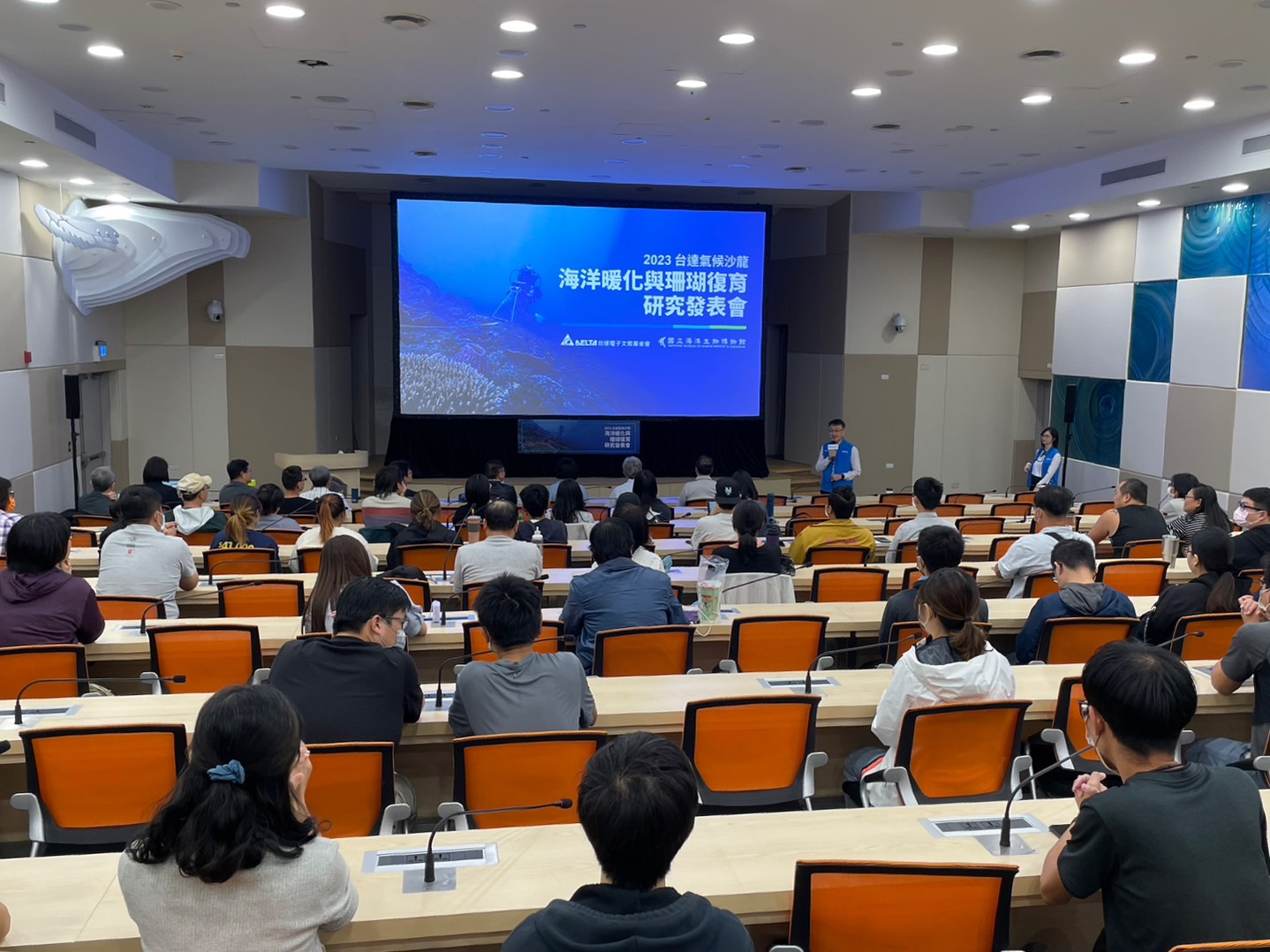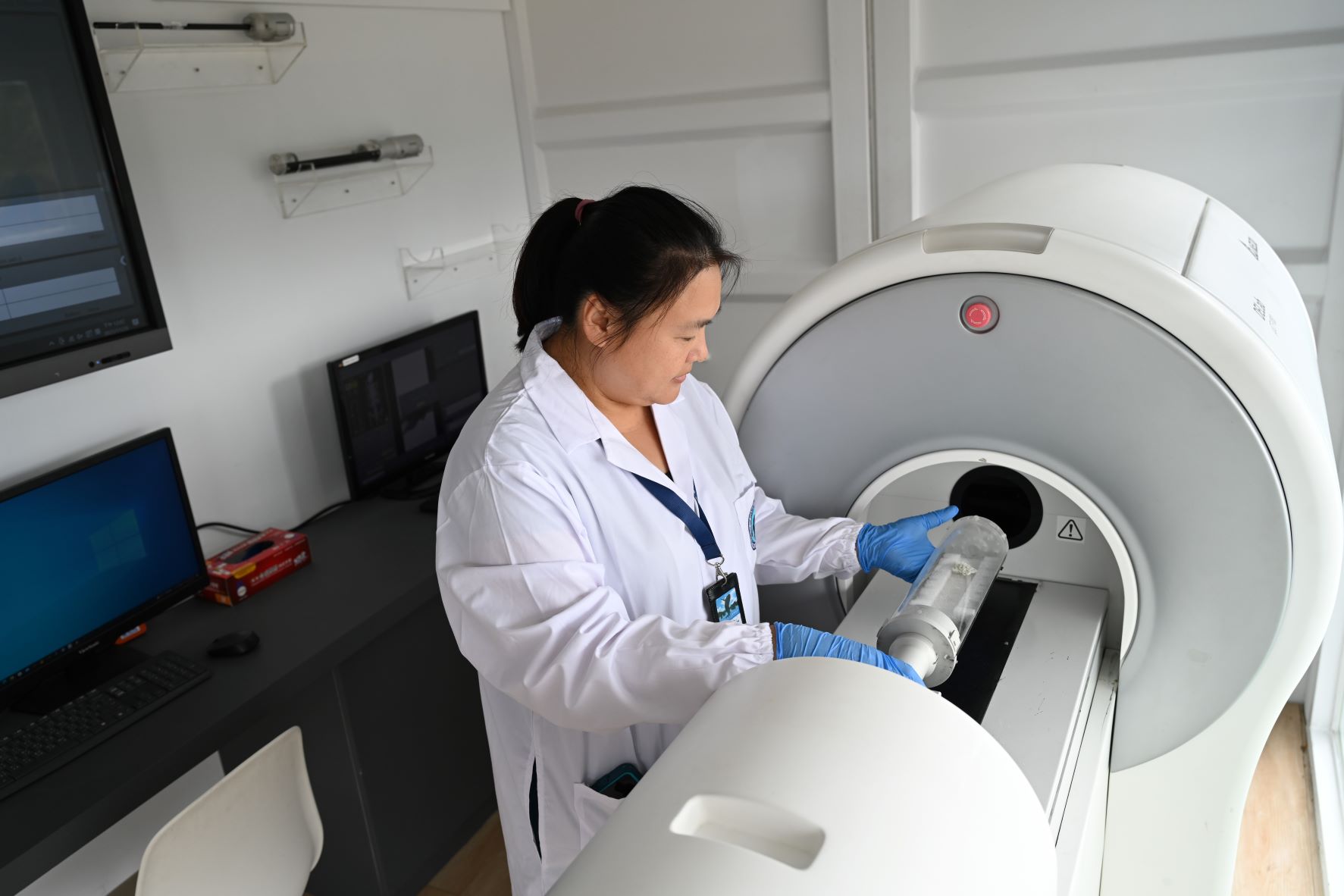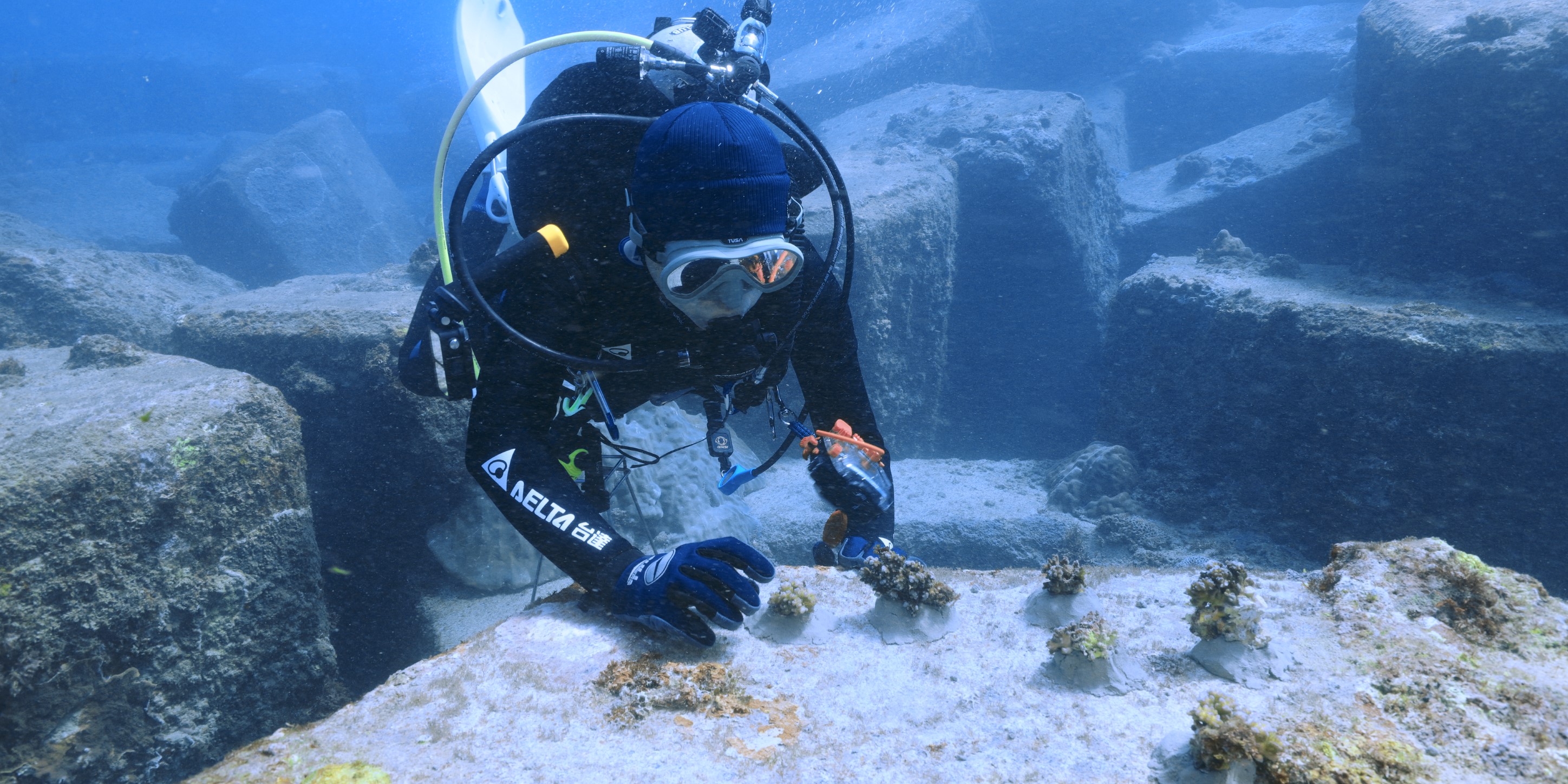According to the Copernicus Climate Change Service, a climate monitoring agency of the European Union, the global surface air temperature on November 17 was 2.06 degrees Celsius higher than the pre-industrial average, and the average temperature in November was also the highest in history. The Intergovernmental Panel on Climate Change (IPCC) also warned that a 2-degree global temperature rise will cause massive extinction of coral reefs, affecting the ecosystem and human beings. How to restore corals is one of the global environmental protection priorities. The Delta Electronics Foundation has teamed up with the National Museum of Marine Biology and Aquarium (NMMBA) in developing adaptation research, and held a climate salon on "Ocean Warming and Coral Restoration" in November, sharing how the Delta efficient coral cultivation system and the Micro Computed Tomography (Micro CT) system can help coral adapt and the preliminary research results, hoping to call on the outside world to pay attention and take action immediately.
 Many researchers who care about ocean warming and coral restoration research participated in the Delta Climate Salon
Many researchers who care about ocean warming and coral restoration research participated in the Delta Climate Salon
To accelerate the conservation and breeding of corals, NMMBA began to use the Delta Micro CT system to reconstruct the 3D structure of live or bleached corals as well as the juvenile corals, and to quantify the growth rate and pattern at various stages. More than 15 species of corals have been analyzed so far, including Acropora, Montipora, Galaxea, and Dipsastreaea. In addition, the research team also continued to use the Delta efficient coral cultivation system to breed and cultivate heat-tolerant Pocillopora, with an annual production of up to 1,000 juveniles. Delta will continue working with the NMMBA to breed more stress-tolerant corals, and to establish standard protocols to evaluate coral skeleton density, to quickly cultivate corals with advanced technology for efficient screening and restoration of corals.

The NMMBA researchers use the Delta Micro CT system to evaluate coral skeletons
Taking the Florida coral bleaching event in the US this past summer as a lesson, Tzu-Jung Chiu, the leader of the adaptation group of the Delta Electronics Foundation, shared the first impression of rescuing corals after an in-person visit: "After months of high temperatures, corals are not only bleached but basically burned in the rescue pool…" The original coral coverage of the area was only 5% prior to the restoration efforts during the past decade, and after experiencing 22 consecutive weeks of higher ocean temperatures this year, coral survival has been seriously threatened. Mote Marine Laboratory & Aquarium (Mote) launched an urgent coral rescue plan to rescue tens of thousands of coral seedlings that had been restored in the past few years from the brink of death in response to the ocean heat wave. The coral fragments were moved to temporary rescue facilities, giving them a chance to cool down and recover. However, as of mid-November, Mote has not yet able to move the corals back to their natural environment, which seems to have sounded the alarm for the coral restoration action. Currently, 107 species of corals on the conservation list of the International Union for Conservation of Nature (IUCN) exist in Taiwan, so we should speed up the conservation efforts to cope with the possible higher temperatures in the upcoming summers after El Niño 2023.
In the salon, Tong-Yun Fan, a researcher at the NMMBA, also shared his experience in restoring heat-tolerant coral juveniles in southern Taiwan. At present, the underwater coral gardening mainly uses Pocillopora acuta as the main experimental model. Through the assistance of Delta volunteers in maintenance, replanting, algae brushing, and continuous monitoring, although southern Taiwan has been hit by typhoons repeatedly this year, the artificially restored corals still reached a survival rate of 6-70% while the wild corals were fragmented after the strong typhoon. He believes that in the future, if corals are massively bleached due to elevated temperatures, priority should be given to obtaining enough coral juveniles for transplanting, especially from the heat-tolerant coral juveniles.

Delta coral restoration volunteers attend to coral juveniles in underwater nursery in effort to restore heat-tolerant coral
The research team of Li-Hsueh Wang collected the egg-sperm bundles from the field in the Kenting area and of northeastern Taiwan during massive coral spawning, and separate the sperm for cryopreservation. As a result, 5 species of Merulinidae and a total of more than 130 tubes of semen have been successfully cryopreserved. Furthermore, they have cultivated a total of 502 coral juveniles from 8 species. All of these efforts are part of the ultimate project to conserve coral genetic diversity in Taiwan.